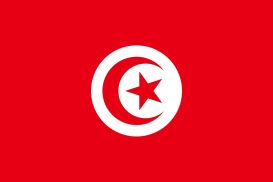
Author(s): National Institute of Field Crop
Resource Type: Case studies
Countries: Tunisia
Keywords: Application, Agriculture, Innovations
IREY Application - Irrigation Reference to Enhance Yield
Source in Arabic: ENACT Case Study - Irrigation Reference Enhance Yield. Tunisia
The application IREY (الري) for irrigation relies on modern technology to enhance the efficiency of water use. It is based on accurate climate data from remote sensing technology, which contributes to estimating the water needs for irrigation at the appropriate time and location. The application uses a database on climate, soil, and plants, and accounts for water budget model that includes soil water reserves, rainfall, and irrigation sources, and water consumption through evaporation, produce, drainage and runoff.
Principles supported
- Responsiveness
- Trust
- Transparency
- Inclusiveness
- Effectiveness
Technology focus
Geospatial technologies (GIS, GPS and remote sensing) - Smart apps to help with decision-making.
Purpose
- Improve the efficiency of irrigation water use through providing farmers with information that support applying the right quantity of irrigation water.
- Reduce water loss through setting a watering schedule and duration based on plant needs.
- Improve the agriculture productivity and quality.
- Save time and efforts, which makes monitoring and managing irrigation an easier task, as the application notifies and alerts farmers on the status of crops and their water needs.
Contributors/ Partners
- National Institute of Field Crops
- Food and Agriculture Organization (FAO)
- SUPROMED for research and innovation, PRIMA Programme
Functions and/or Features
- Monitoring of soil moisture remotely and continuously.
- Determining the water needs of crops and the optimal schedule for irrigation.
- Learning about the soil's physical properties.
- Issuing alerts to remind farmers of irrigation schedule and soil condition.
Outcomes, impacts & changes
- The irrigation application "IREY" (الري) contributes to water use efficiency and productivity using the same water quantity.
- It is a valuable tool that provides farmers with guidance and help them improve irrigation water management and balance water use.
- Water use efficiency reduces irrigation costs and enhances crop productivity and farmer's income.
Challenges
- Collecting the data required for analysis and use in developing the application, and providing reliable information on plants, soil, climate, and water resources.
- Accuracy in designing the application such that it meets the needs of farmers and is compatible with local conditions and technical requirements.
- Implementing the application and developing the appropriate software and technology for setting the required functions.
- Connecting and communicating with farmers and providing the technical support and training needed to introduce the application and method of use.
Lessons learned
- Importance of collecting accurate and reliable data that can be used to support decision-making.
- Need to work on adapting modern technologies to the local conditions and farmer's needs.
- It is essential to engage and consider farmers needs in the development the application and provide the technical support and guidance that promote its use.
- Strengthening cooperation with stakeholders and private institutions towards developing a better application.
- Introducing the application and building capacities on its use towards enhancing agriculture production.
- Encourage innovation and improvement of the application based on the feedback and experiences of users.
Useful links
Video - The use of the IREY (الري) mobile application for irrigation management.